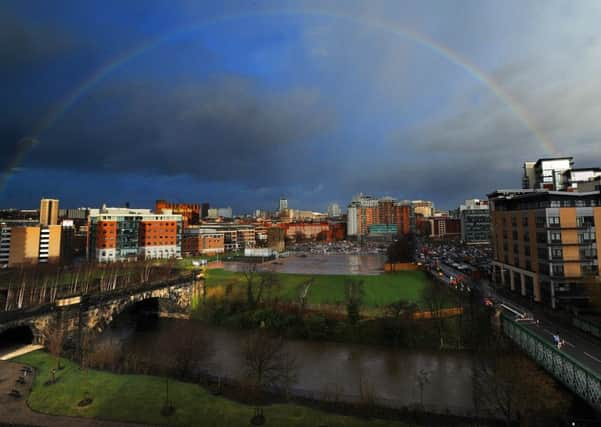Revealed: The shocking numbers of Leeds people living in absolute poverty


Leeds City Council’s infrastructure scrutiny board were hearing details of a report into the authority’s inclusive growth programme – which hopes to help move people out of poverty.
Advertisement
Hide AdAdvertisement
Hide AdAnd although Leeds’s jobs market was one of the UK’s best-performing since the 2008 recession, the panel was warned that zero-hours contracts, the spectre of Brexit and the predicted demise in low-skilled jobs makes for an uncertain future.
Council officer Sue Wynne told the meeting: “We have had the highest jobs growth of any core city – in that respect the economy appears to be working well.
“However, we have had an increasing concern in equality and social mobility.
“People who don’t do well at school tend to find themselves trapped in low paid and insecure employment.”
Advertisement
Hide AdAdvertisement
Hide AdShe added that it is predicted that the number of low and semi-skilled jobs is expected to decline over the next few years.
“We have Brexit creating uncertainty,” she said. “The biggest of which could be loss of migrant workers in low paid jobs in health and care and hospitality.
“Looking at the figures for skilled trades occupations, last year we lost 2,300 of them. It’s forecast that by 2020 we will attract 20,000 jobs, but those are likely to be at the higher end of the sectors.
“Most of them will require level four qualifications and above. You are talking about degree-level qualifications.”
Advertisement
Hide AdAdvertisement
Hide AdThe meeting also heard absolute poverty is estimated to affect 155,000 people in Leeds.
The report which went before councillors added: “Over 160,000 people in Leeds live in neighbourhoods that are amongst the 10 per cent most deprived neighbourhoods in England. Over 26,400 children were living in poverty in the city in 2015.
“Unemployment has been reducing, but is still too high in some parts of the city.
“A fast changing economy has implications for the skills people need to access jobs, progress within their careers and be resilient to economic shocks.
Advertisement
Hide AdAdvertisement
Hide Ad“Low pay is a growing issue. Over 80,000 jobs (many of them part-time andinsecure) pay less than the living wage of £8.45 an hour as recommended by the Living Wage Foundation.
“Productivity (the economic output per worker / hour worked) in the Leeds economy has not risen significantly since the recession, and lags well below the national average, in common with our northern peers.”
It was suggested that the apprenticeship levy – a tax put on large businesses in the city to pay for training for young people – should be continued.
Coun Ron Grahame (Lab) said companies should be pressured to invest more money into helping communities, dubbed corporate welfare.
Advertisement
Hide AdAdvertisement
Hide AdHe added: “There is an agenda that we don’t actually look at.
“Where corporate welfare is concerned, it causes me concerns. We discuss universal credit – but not corporate welfare. It’s a big issue that needs addressing.”
Coun Neil Buckley (Con) said: “We all want wages to be higher. The report makes the comment that there will be effects (of Brexit) but we don’t know what they are.
“But there is also a labour shortage of people not coming to the country who were before.
“If the labour marker tightens up and we have fewer people chasing jobs, this should have the effect of causing wages to remain not as low as they were.”